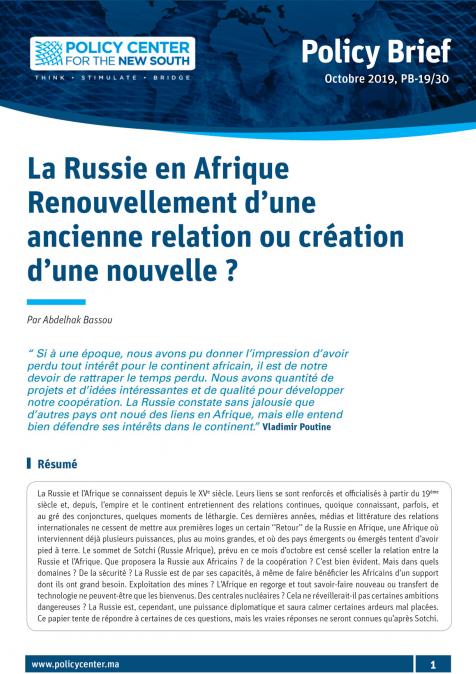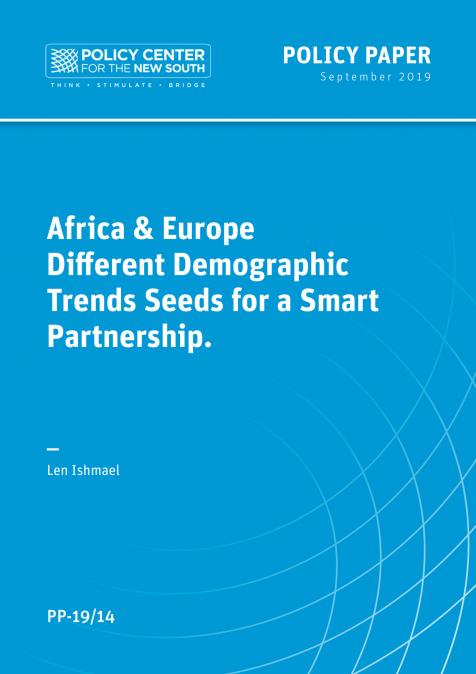Publications /
Opinion
Adolf Hitler envisaged a Germanic empire ruling the planet for 1000 years. History imposed another scenario: after 12 years in power, the delusional führer swallowed a deadly cyanide capsule and, to be absolutely certain, shot himself with his personal Walther pistol. It was April, 30, 1945. The surrender of the Nazi Reich was near. The dictator’s personal guard followed the führer’s orders even while their hero was turning cold and carried Hitler and his wife of one day, Eva Braun, into the garden, adjacent to the underground bunker. They doused the bodies with petrol, and while Hitler was in flames, clicked their heels and raised their right arms in a final salute to a man judged by Winston Churchill as a “monster of wickedness, insatiable in his lust for blood and plunder.”
When Russian troops reached the bunker in the German capital Berlin, they did not immediately discover the corpses. A few days later, on May 5, the Soviets found Hitler’s skull fragments and a set of teeth. These were used to identify the body, reassuring the Soviet leader, Joseph Stalin, that Hitler really was dead. Hitler’s remains were buried in February 1946 at a secret location’sin Soviet-occupied East Germany, near the town of Rathenau. Months later, the remains were transferred to an army garrison near Magdeburg. Finally, in 1970, what was left of Hitler was burned on a bonfire and the ashes thrown into the Biederitz river, a tributary of the nearby Elbe. Moscow has retained to this day some skull fragments and four remaining teeth in its archives.
“THE DEVIL’S GREATEST FEAT”
No word in the dictionaries of mankind would be adequate to characterize Hitler’s evil crimes. American Jewish author Norman Mailer, who, in the last years of his life, aged 84, tried to analyze in a book the madness of the Austrian born dictator, said Hitler “exceeds human comprehension”. For Mailer the only explanation was “the existence of the devil.… Hitler is the devil’s greatest feat against Jesus Christ.” When Germany’s President Paul von Hindenburg appointed Hitler as German Chancellor in 1933, the politician and former general Erich Wilhelm Ludendorff wrote to the head of state complaining: “you have delivered up our holy German fatherland to one of the greatest demagogues of all time. I solemnly prophesy that this accursed man will cast our Reich into the abyss and bring inconceivable misery upon our nation. Future generations will curse you in your grave for your action.”
The warning still resonates. Seventy-five years after the capitulation of Nazi Germany, the shadow of history still lingers above Berlin. The German nation, now 82 million people (of whom 20.8 million are of immigrant background, and 15 percent of those came as asylum seekers) must still confront the ghost of Hitler. The horrendous destruction during the war, the loss of life (in the Soviet Union alone an estimated 26 million people, in Germany up to six million dead soldiers and civilians), the concentration camps (with about six million victims), the affront to culture and decency, would be forever part of Germany’s shame and history. There was hope, however, that memories of the horrors would make impossible another conflict in Europe, or a troubling revival of Nazi nostalgia. Hitler, facing capture or death, is said to have uttered in April 1945 one last line of self-deceiving rhetoric: “It is necessary that I should die for my people, but my spirit will rise from the grave and the world will see I was right.”. In April 2016, Jan-Werner Mueller, Professor of Politics of Princeton University, declared: “Never since the Nazi era has a right wing party as the AFD enjoyed such broad cultural support.” Hitler was dead, yet populism, , which Germany believed to have buried, has blossomed.
There is no grave and no monument to Hitler in Berlin. Yet swastikas, the symbols of peace turned by the Nazis into symbols of evil, are in vogue on the political and social fringes of Germany. Some people even read Hitler‘s racist tract Mein Kampf. Racism has developed into arson attacks on migrant shelters. The radical right wing party, Alternative für Deutschland (AFD) was voted into Germany’s federal parliament in 2017. Its 94 seats made it the largest opposition party. Some if not all its members are xenophobes. Some have proposed banning mosques, others were ready to shoot migrants to stop them reaching German territory, and more than a few have predicted the “slow cultural extinction” of Germany.
“A BAD DAY FOR DEMOCRACY”
Angela Merkel, Germany’s Chancellor for the last 14 years was from 2000 to 2018 a balanced, thoughtful leader of her conservative party, the Christian Democratic Union (CDU). She will probably resign as Chancellor in 2021. Until a few weeks ago her successor was to be Annegret Kramp-Karrenbauer, who was elected in December 2018 to replace Mrs Merkel as CDU leader. But the peaceful transition plan has failed. Mrs Kramp- Karrenbauer will remain defense secretary, but will resign as CDU leader soon as a replacement can be elected, probably at an extraordinary CDU congress in the last week of April. And Mrs Kramp-Karrenbauer has also announced to her party that she no longer intends to become Chancellor, or German government leader. What created the political earthquake, which is troubling the established parties, and is causing anxiety in Germany? The AFD. The state parliament in Erfurt, capital of the German state of Thuringia, elected Thomas Kemmerich of the liberal Free Democratic Party (FDP) as minister president (governor). So what? The only reason this candidate was elected was the votes of both the CDU and the AFD, breaking a taboo in German politics that until now has prevented any cooperation between mainstream parties and the radical right. Remember Hitler?
Mrs Merkel did not know of any deal between her party and the radical right. The Chancellor, on a trip in South Africa, protested that the Thuringia agreement was unforgivable and marked “a bad day for democracy.” Her friend, the party chairwoman, Mrs Kramp-Karrenbauer announced her resignation. The Thuringia deal, on top of other blunders, showed she had lost control of her party, which in February 2020 state elections in Hamburg received only 11.02% of the vote, its worse state election result since World War II. FDP boss Christian Lindner hurried to Erfurt and forced Kemmerich to abandon his governorship immediately. Kemmerich did, but the Hamburg election saw the FDP voted out of the state parliament. In a period of political chaos, traditional parties seem to be in free fall. Even the conservative Bild newspaper considered the Thuringia far right/right alliance “a disgrace”. How can German democracy be protected against a swing to the radical right? “The conservatives of the Weimar Republic thought they could use Hitler,” explained the news magazine Der Spiegel in an editorial. “In truth he was using them. They were in the final stages of democracy’s demise without realizing it.” Comparisons like this, warned the magazine, “are inherently imperfect, but it can’’t hurt to view the current situation as an early phase, like the one experienced a century ago.” In Thuringia history seemed to repeat itself: in the crumbling days of the Weimar Republic more than 90 years ago, the Nazis first won power locally in Thuringia, before going on to win nationally—with the help of conservative parties.
“THE SHAMEFUL MACHINATIONS GO FAR DEEPER”
Lukas Hermsmeier, an editor of was wäre wenn, an online political magazine, observed that “these shameful machinations go far deeper: the increasing normalization of the radical right in German politics”. Even if Germany’s conservatives and liberals have not entered into formal agreements with the right at the federal level, and are unlikely to let the AFD into a future government”, the traditional conservative and liberal parties including the CDU and FDP, certainly at local level, have in the past collaborated quietly with the radical right. Leading Christian Democrats, insisted Mr Hermsmeier, “have declared their willingness to work with the far right party.” The AFD has grown consistently since its founding in 2013, and is now present in the parliament of each of Germany’s 16 states. In the five East German states, the AFD has a realistic chance of assuming power at the next state elections. It currently has vote shares of at least 20%: Sachsen-Anhalt (24.2%), Brandenburg (23.5%), Mecklenburg- Vorpommern (20.8%), Thuringia (23.4%), Sachsen (27.5%). Angela Merkel has admitted that “we currently feel centrifugal forces in our society, and in our party. We have to be strong, stronger than we are today.”
Just as the radical right is challenging the established holders of power, and the CDU is facing a power struggle, domestic terrorism is touching Germany. In late February, a German extremist murdered nine people in two shisha bars in Hanau, a city near Frankfurt. Most of the victims were of Turkish background; one was German—the mother of the killer. He committed suicide. Germany is anxious, troubled even, dealing with a profound sense of malaise and political limbo, as violent attack multiply, and are slowly becoming normal.
In July 2018, Beate Zschaepe was jailed for life. She was the only survivor of the so-called National Socialist Underground, which, over several years, murdered eight Turkish residents, one Greek citizen and a German police woman, and was accused of 15 armed robberies. In October 2019 a German man tried to attack a synagogue in the eastern city of Halle, during Yom Kippur, the holiest day in Judaism. When he could not enter, the attacker shot and killed a female bystander and a 20 year-old man in a kebab shop. The gunman streamed his attack online for 35 minutes and published a far-right manifesto. On June 2, 2019, a German local politician was shot dead on his front porch in the city of Kassel, in what appears to be Germany’s first far-right political assassination since the Nazi era. The suspect, who confessed and later retracted, has a violent neo-Nazi past and a police record. Katrin Bennhold of the New York Times wrote that “Far-right militancy is resurgent in Germany, in ways that are new and very old, horrifying a country that prides itself on dealing honestly with its murderous past. Raw and hateful language has become increasingly common online, and politicians are increasingly under threat, with some now requiring protection.”
“RAW AND HATEFUL LANGUAGE”
“Today it is impossible to imagine Germany returning to any version of its complicated past,” argued Robert Kagan, senior fellow at the Brookings Institution, in the May/June 2019 issue of Foreign Affairs. But the Alternative for Germany party is guided by ideologues who are tired of the Schuldkult (cult of guilt) and blame the influx of foreigners on German politicians they call, as one party leader did, “puppets of the victor powers of the Second World war. There is no reason why a party espousing a more mainstream, less offensive version of such sentiments might not find its way into power at some point.” As the historian Timothy Garton Ash has observed, a “cultural struggle for Germany’s future “is already under way.”



